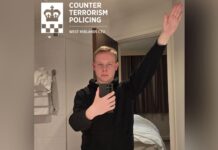A new play designed to alert students to the fact that one of their classmates might be sympathetic to terrorist organisations is being staged at a London college, the TES reports.
My Brothers and Sisters tells the story of 15-year-old Shamilla and her older brother, Mohammed, who both suddenly go missing.
It is being performed to staff and students at City of Westminster College in order to make them aware of their legal responsibility, under the government’s new PREVENT strategy, to identify young people at risk of radicalisation.
A large number of British Muslim organisations and activists have called for PREVENT to be scrapped on the grounds that it targets the Muslim community and is tantamount to state Islamiphobia.
Playwright Craig Hanlon-Smith was approached to write the play last February after the disappearance of three Muslim girls from an East London school.
“My initial response, as a 40-something-year-old white man, was, ‘I’m not sure I’m the right person to do this’,” Mr Hanlon-Smith told the TES. “But, as someone working with young people, these girls could have crossed my path. Being radicalised is something that could happen to anyone. This story belongs to all of us, really.”
All schools and colleges in England became subject to the PREVENT guidelines in July last year. Under these guidelines, staff are legally obliged to look out for and report early signs of radicalisation and extremism among students.
Subscribe to our newsletter and stay updated on the latest news and updates from around the Muslim world!
In order to demonstrate its commitment to this new duty, Westminster City College has dedicated the entire month of January to highlighting and addressing radicalisation.
My Brothers and Sisters is running from 11 to 22 January, with three performances for students each day. Two evening performances – on 14 and 21 January – are open to the public, and will be followed by a question-and-answer session with Mr Hanlon-Smith, as well as the play’s director and cast.
Mr Hanlon-Smith said: “We have a responsibility to work with young people and engage the PREVENT agenda. Radicalisation comes in many forms, and we’re all possibly susceptible to it.”






















